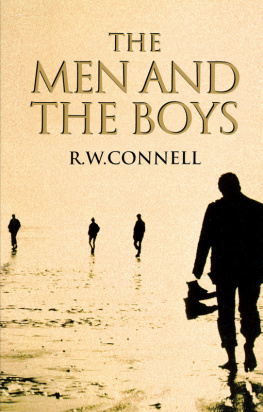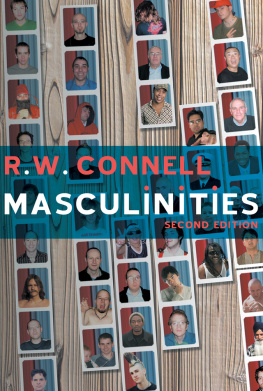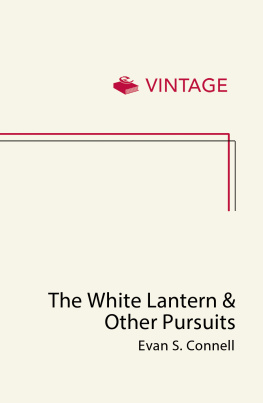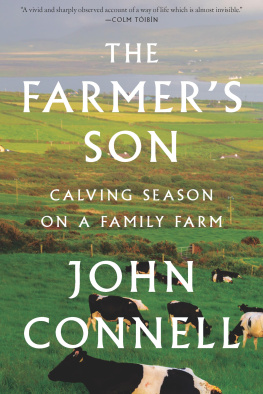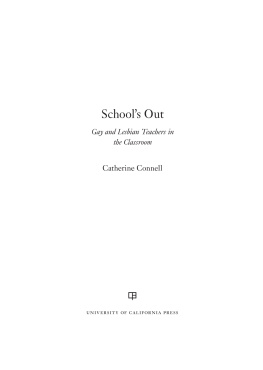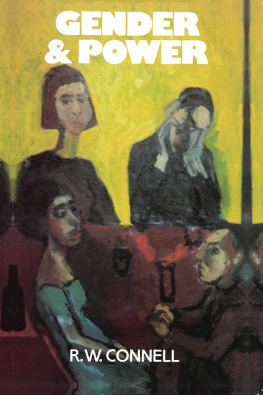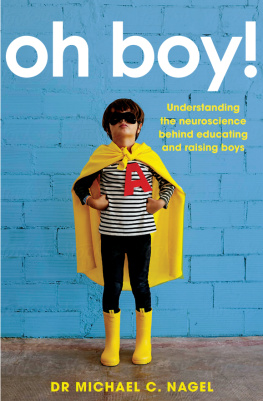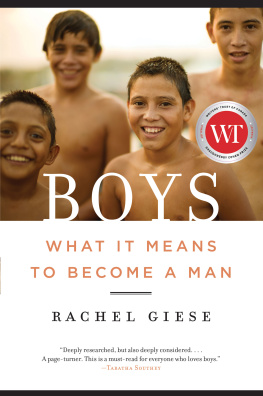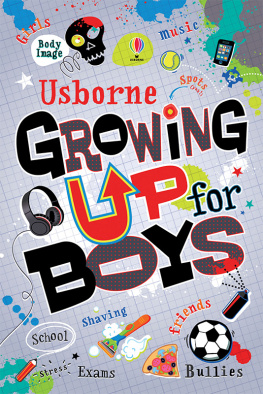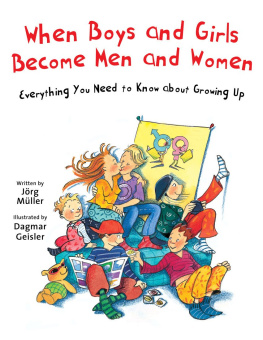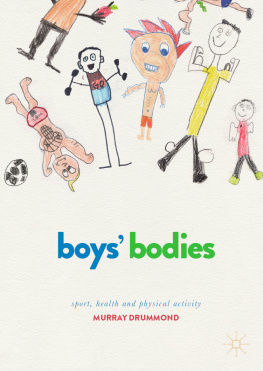Copyright R.W. Connell 2000
Chapter 7 R.W. Connell, M.D. Davis and G.W. Dowsett 2000
The right of R.W. Connell to be identified as author of this work has been asserted in accordance with the Copyright, Designs and Patents Act 1988.
First published in 2000 by Polity Press
in association with Blackwell Publishers Ltd
Editorial office:
Polity Press
65 Bridge Street
Cambridge CB2 1UR, UK
Marketing and production:
Blackwell Publishers Ltd
108 Cowley Road
Oxford OX4 1JF, UK
All rights reserved. Except for the quotation of short passages for the purposes of criticism and review, no part of this publication may be reproduced, stored in a retrieval system, or transmitted, in any form or by any means, electronic, mechanical, photocopying, recording or otherwise, without the prior permission of the publisher.
Except in the United States of America, this book is sold subject to the condition that it shall not, by way of trade or otherwise, be lent, re-sold, hired out, or otherwise circulated without the publishers prior consent in any form of binding or cover other than that in which it is published and without a similar condition including this condition being imposed on the subsequent purchaser.
ISBN 978-0-7456-6602-0 (Multi-user ebook)
A catalogue record for this book is available from the British Library.
Set in 11/13 pt Bembo by DOCUPRO, Sydney
Printed in Great Britain by T.J. International, Padstow, Cornwall
THE MEN AND
THE BOYS
R.W. Connell
Polity
Contents
To Kylie
PART 1
EXAMINING MASCULINITIES
PART 5
CHANGING MASCULINITIES
Debates about men, new research on masculinities
ISSUES ABOUT MEN AND BOYS
In recent years, questions about men and boys have aroused remarkable media interest, public concern and controversy.
In the United States two mens movements gained large, if temporary, followings in the 1990s, one based on new-age therapy, the other on right-wing evangelism. Both raised questions about mens identity and offered remedies for troubles in mens lives. In other English-speaking countries such as Australia and Canada, where identity movements have been weaker, there have been vigorous and sometimes bitter public debates about mens violence, mens health and boys supposed disadvantage in education.
There is no doubt about the historical source of these debates. The new feminism of the 1970s not only gave voice to womens concerns, it challenged all assumptions about the gender system and raised a series of problems about men. Over the decades since, the disturbance in the gender system caused by the womens movement has been felt by very large numbers of men. A growing minority of men has attempted to grapple with these issues in practice or in the realm of ideas.
Concern with questions about boys and men is now worldwide. Germany has seen pioneering feminist research on men, programs for male youth, and debates on strategies of change for men. There is an active network of researchers on men and masculinity in Scandinavian countries, where the post of Nordic coordinator for mens studies has recently been created. In 1998 Chile hosted a conference on masculinities in Latin America, which drew researchers and activists from as far apart as Brazil and Nicaragua.
In Japan there have been changes in media images of men, companionate marriages and shared child care, renegotiations of sexuality, and explicit critiques (by men as well as women) of traditional Japanese ideals of masculinity. A new mens centre publishes papers and books exploring new patterns of masculinity and family life. In 1998 the South African feminist journal Agenda published an issue on new directions for men in the democratic transition after apartheid. In 1997 UNESCO sponsored a conference in Norway on the implications of male roles and masculinities for the creation of a culture of peace, which drew participants from all over Europe and some other parts of the world.
Concern with issues about masculinity has not only spread to many countries, but also into many fields. Health services are noticing the relevance of mens gender to problems such as road accidents, industrial injury, diet, heart disease and, of course, sexually transmitted diseases. Educators are discussing not just the idea of programs for boys, but also the practical details of how to run them. Criminologists have begun to explore why boys and men dominate the crime statistics, and violence prevention programs are taking increasing notice of gender issues.
Questions about men, boys and gender have thus ceased to be a specialist concern of a small group of intellectuals. They have moved into the public arena, and though media attention will wax and wane, there is no reversing that move.
So the intellectual debate on masculinity now has practical consequences. How we understand men and gender, what we believe about masculinity, what we know (or think we know) about the development of boys, may have large effectsfor good or illin therapy, education, health services, violence prevention, policing, and social services.
It matters, therefore, to get our understanding of these issues straight. We need to know the facts, connect policy debates with the best available research, and use the most effective theories. That is the principle on which this book is written.
Issues about masculinity are important but not easy. They are made no easier by the recent influence of a school of pop psychologists who offer a highly simplified view of the problems of men. Their central idea is that modern men are suffering from a psychological wound, being cut off from the true or deep masculinity that is their heritage. A whole therapeutic movement offers to heal the wound by re-establishing bonds among men, with initiation rituals, retreats etc.
The popularity of books like Iron John by Robert Bly, Fire in the Belly by Sam Keen and Manhood by Blys Australian follower Steve Biddulph, suggests that they have tapped into some real problems, at least among the middle-class white men who are their main audience. I think the key point they have realized is the importance of mens emotional liveswhich strikes many in this audience as a revelation, precisely because conventional middle-class western masculinity tends to suppress emotion and deny vulnerability.
To emphasize that men do have emotional troubles, that masculine stereotypes can be damaging, that men suffer from isolation, and that men too can hold hands and crythis is not a bad thing. Writers like Keen, especially, have eloquent things to say about the distortions of mens emotional lives, and how they are connected with violence, alienation, and environmental destruction.
But in pop psychology these understandings come at a considerable price. With the aid of the later and crazier works of Carl Jung, this school of thought has constructed a fantasy of the universal deep masculine, which is as stereotyped as anything in Hollywood (and which is contradicted by actual research, as will be seen throughout this book). Trying to find cross-cultural proof of the deep masculine, Bly and his followers raid non-western cultures for stories and symbols of masculinity which they rip out of context in a startling display of disrespect. The rituals invented to fill the void in mens lives, though they can have an emotional impact, are as authentic as Disney World. Pop psychology itself rests on the authors ability to tell persuasive and entertaining stories, not on their grasp of the facts. Some of the cases in the American pop psychology literature about men are undoubtedly faked.

